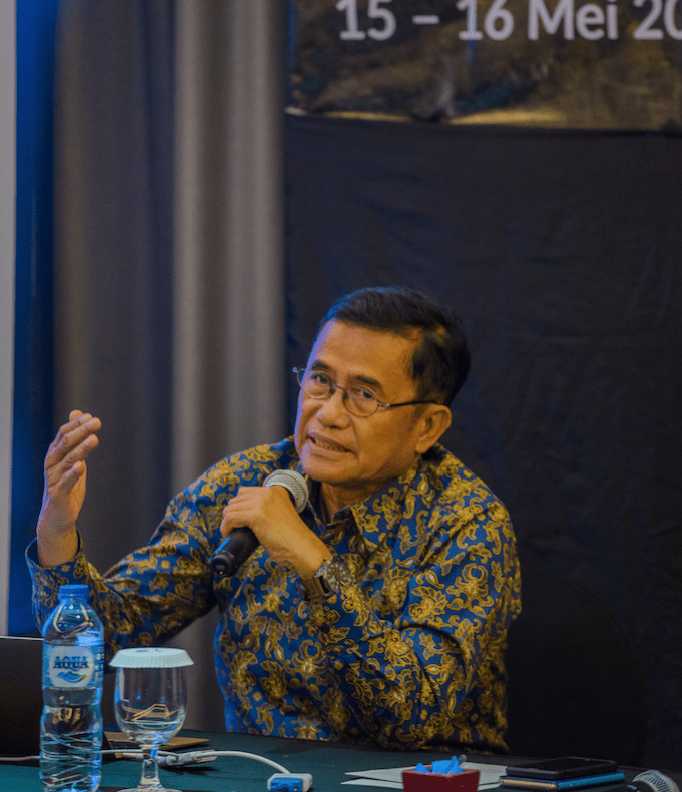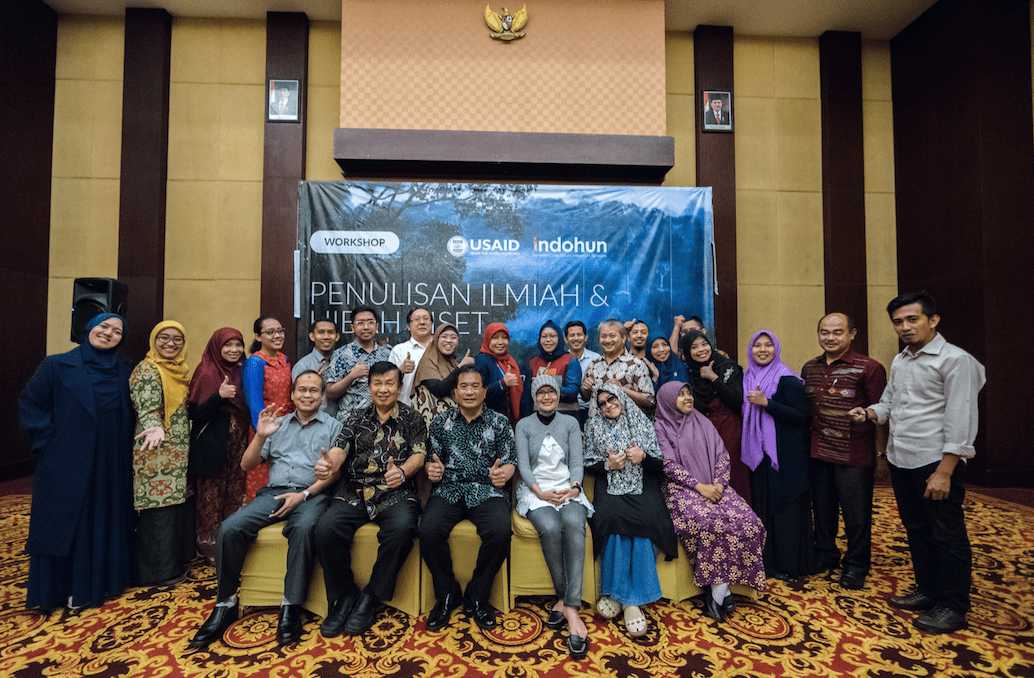Multi-scientific disciplines approach—as such by assembling scientists coming from many different backgrounds—is of paramount importance in addressing the world’s complex challenges. DEAL (Disease Emergence and Economic Evaluation of Altered Landscape), as one of INDOHUN’s multi-disciplinary research project, aims to boosts capacities among faculties in Indonesia in designing, implementing and writing scientific studies with multi-disciplinary topics.
Other than working on researches regarding the impact of land use towards diseases emergence in Indonesia (which is currently the main ongoing study of DEAL), INDOHUN has been doing a lot of scientific writing workshops in many universities network members which all are a part of the DEAL project. Those universities are Riau University in Riau, Mulawarman University in East Kalimantan, and Papua University in West Papua.
In each university, INDOHUN has assigned teams who would work on the research, a team full of multi-disciplinary disciplines arranging from the field of environment, health, as well as economy. This, we believe, would provide many opportunities for local faculties to initiate an environment of work where scientists coming from different discipline would work together in achieving a common goal.
To better support our network members in local universities, this month, INDOHUN had executed another consecutive workshop of Scientific Writing and Grant Writing in the three different provinces—starting from the area West Papua. The event was realized with the help and collaboration with the Environment Study Center of Papua University on the 7th-8th of May 2018, where we had 44 participants joining our workshop in Manokwari. Scientific writing class was led by Prof. Dr. dra. Ratu Ayu Dewi Sartika, Apt., MSc from University of Indonesia who also currently acts as one of the professors in Faculty of Public Health, University of Indonesia and as for Grant Writing class, we had Prof. Drh. Wiku Adisasmito, M.Sc., Ph.D as the speaker who has profound experiences with international grants and projects.

The next event was held on the 15th-16th May 2018 in Pekanbaru, Riau. Here, we also conducted two classes of Scientific Writing and Grant Writing with respective speakers namely Prof. Jatna Supriatna, M.Sc., Ph.D. from Research Center for Climate Change (RCCC) University of Indonesia and Dr.dr. Ni Nyoman Sri Budayanti, Sp,MK(K) from Udayana University. There were 12 participants from each class who joined the workshop, where most of them came from Environment Study Center of Riau University.
These workshops were delivered within many sessions, combining theoretical materials and interactive simulation and exercise. Scientific writing class discussed four sub-topics which include: (1) how to write research effectively, (2) writing research result, (3) scientific publication, (4) peer review, research ethics, and plagiarism, as well as (5) research communication. As for the grant writing class, from two full-day workshop, we covered topics of: (1) the types of grant researches in Indonesia, (2) proposal submission, (3) writing research proposal, (4) setting target and timeline, (5) budgeting, and also (5) finalizing draft of grant proposal.
On the 25th-26th of June 2018, the last event was held in Samarinda, East Kalimantan in collaboration with the Mulawarman University. During this event, there were 45 participants coming from the Faculty of Public Health and Graduate Faculty of Mulawarman University. Inviting the same speakers we had in Manokwari, West Papua—Prof. Ratu Ayu Dewi Sartika and Prof. Wiku Adisasmito—the workshop in Samarinda was successfully conducted and officially ended our consecutive events of workshops for local universities in this project.
We receive different feedbacks from the participants which all were positive. Participants expect upcoming follow-up workshops as they were aware that developing scientific writing and research skills can’t be done by only participating in a one or two days of learning event, hence workshop needs to be held annually.
From our experiences in Manokwari, Pekanbaru, and Samarinda, we have seen potential avenues for the improvement of multi-disciplinary research among researchers in Indonesia. Thus, we believe, in a short future there would be many notable works from Indonesian researchers who come from different disciplinary, and are together hand-in-hand working to achieve a common goal.
